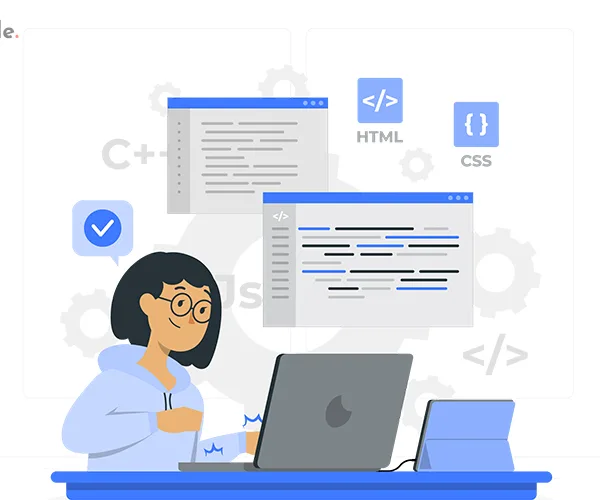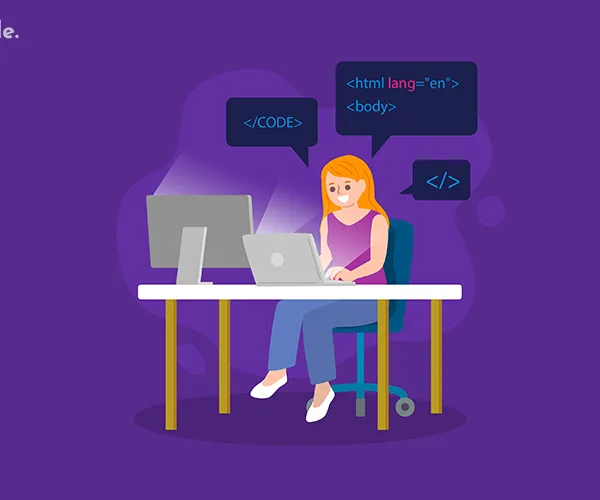Mastering Java Concepts: If you’re looking to dive into the world of programming, Java is an excellent language to start with. It’s versatile, widely used, and offers a strong foundation in object-oriented programming. This guide will walk you through the best Java courses available for beginners, helping you embark on a journey to mastering Java concepts.
Table of Contents
Why Learn Java?
Before we delve into the courses, let’s understand why Java is such a popular choice for beginners and experienced programmers alike.
1. Platform Independence:
One of Java’s key features is its ability to run on any device that has the Java Virtual Machine (JVM) installed. This ‘write once, run anywhere’ capability makes Java a versatile language for developing applications across different platforms.
2. Object-Oriented Programming (OOP):
Java is an object-oriented programming language, which means it focuses on creating reusable and modular code. This paradigm is widely used in the industry, making Java a valuable skill for developers.
3. Robust Standard Library:
Java comes with a comprehensive standard library that provides ready-to-use classes and methods for various functionalities. This extensive library reduces the need for developers to write code from scratch, saving time and effort.
4. Strong Community Support:
The Java community is vast and active, providing a wealth of resources, forums, and communities for learners and professionals. This support network is invaluable for troubleshooting, learning, and sharing experiences.
Recommended Java Courses for Beginners
Now that we’ve established why Java is an excellent choice, let’s explore some of the best courses to help you get started.

1. Codecademy’s Learn Java:
Codecademy offers an interactive and beginner-friendly course that covers the basics of Java. Through hands-on exercises, you’ll learn about variables, control flow, loops, and object-oriented programming concepts.
2. Coursera’s Java Programming and Software Engineering Fundamentals:
This course, offered by Duke University, provides a comprehensive introduction to Java programming. It covers topics like data abstraction, algorithm design, and testing, providing a well-rounded understanding of Java concepts.
3. Udemy’s Complete Java Masterclass:
Led by renowned instructor Tim Buchalka, this course is designed for absolute beginners and takes you from the basics to advanced Java programming. It covers topics like inheritance, polymorphism, and multithreading in detail.
4. edX’s Introduction to Computer Science and Programming Using Java:
This course, provided by edX, not only introduces you to Java but also covers fundamental computer science concepts. It’s an excellent choice for learners who want to gain a deeper understanding of the theoretical underpinnings of programming.
5. Java Programming and Software Engineering Fundamentals Specialization (Coursera):
Offered by Coursera, this specialization provides a series of courses that cover Java programming, data structures, and software engineering principles. It’s a comprehensive program for those looking to dive deep into Java development.
Key Java Concepts Covered in These Courses
As you progress through these courses, you’ll encounter a range of fundamental Java concepts. Here are some of the key topics you can expect to cover:
1. Variables and Data Types
Java offers various data types, including integers, floats, characters, and more. Understanding how to declare and manipulate variables is essential for any Java programmer.
2. Object-Oriented Programming (OOP)
Java is an object-oriented programming language, and mastering OOP principles like classes, objects, inheritance, and polymorphism is crucial for effective Java development.
3. Control Structures (Loops and Conditionals)
Control structures allow you to dictate the flow of your program. This includes loops (for, while, do-while) and conditionals (if-else statements).
4. Exception Handling
Java provides a robust system for handling errors and exceptions. Learning how to handle these situations gracefully is a vital skill for any Java developer.
5. Multi-Threading
Java’s ability to handle multiple tasks concurrently is a powerful feature. Understanding how to implement and manage threads is essential for building efficient applications.
6. Collections Framework
Java’s Collections Framework provides a set of classes and interfaces for handling collections of objects. This includes lists, sets, maps, and more.
FAQ
Q1: Why should I choose Java as my first programming language?
Java is an excellent choice for beginners due to its platform independence, object-oriented programming paradigm, robust standard library, and strong community support. These features make it versatile and widely used in the industry.
Q2: How do I know which Java course is right for me?
When choosing a Java course, consider factors like your learning style, time commitment, and desired level of proficiency. It’s also helpful to read course reviews and check the syllabus to ensure it aligns with your learning goals.
Q3: What are the key topics covered in a typical Java course for beginners?
A typical Java course for beginners covers fundamental concepts such as variables, control flow, loops, object-oriented programming, data abstraction, algorithm design, and testing. It may also touch on more advanced topics like inheritance, polymorphism, and multithreading.
Q4: How long does it usually take to master Java concepts?
The time it takes to master Java concepts varies from person to person and depends on factors like prior programming experience, the complexity of the course, and the amount of time dedicated to practice. With regular practice and dedication, most learners can gain proficiency within a few months.
Q5: Are there any additional resources or communities to support my Java learning journey?
Yes, the Java community is vast and active. You can find forums, online communities, and resources like blogs, tutorials, and YouTube channels dedicated to Java programming. Engaging with these resources can provide valuable support, networking opportunities, and additional learning materials.
Conclusion
When selecting a Java course, consider your learning style, time commitment, and desired level of proficiency. Remember to practice regularly and apply what you’ve learned through mini-projects or coding exercises.
In conclusion, mastering Java concepts is an excellent step towards becoming a proficient programmer. With the right course and dedication, you can build a solid foundation in Java programming and open up a world of opportunities in software development.
Start your Java journey today, and unlock the potential to create powerful, platform-independent applications!



